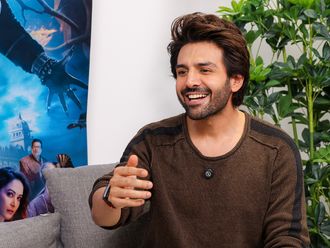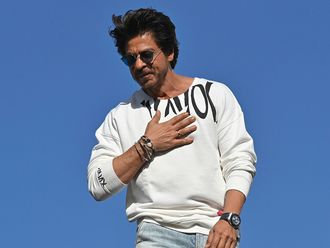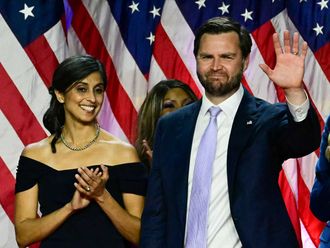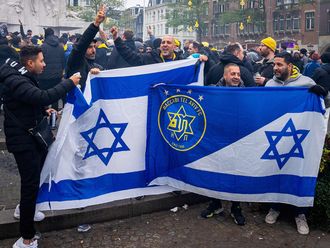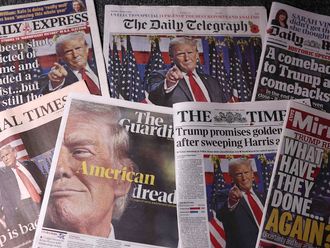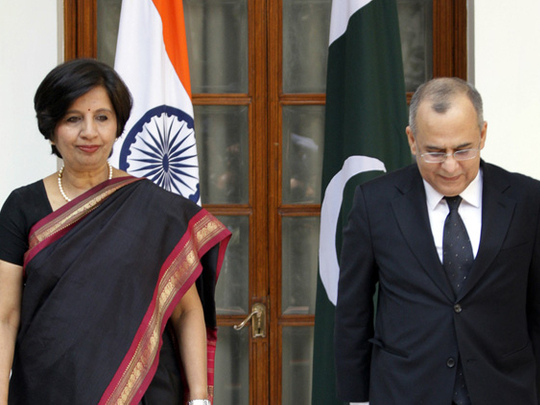
New Delhi: India and Pakistan held high-level peace talks Thursday for the first time since the 2008 Mumbai attacks in an effort to rebuild confidence and reduce tensions between the nuclear-armed rivals.
The one-day talks in New Delhi between the two countries' foreign secretaries is seen as an important achievement that could help Pakistan concentrate its resources on supporting the U.S. in its fight against the Taliban and al-Qaida.
Few were expecting any breakthroughs on the divisive issues that have sparked three wars and countless skirmishes between the neighbors over the past six decades.
Indian Home Minister Palaniappan Chidambaram said he was "not very optimistic" about the talks.
The talks have no agenda and either side can bring up any issues it wants to, "but we are not going to enter into substantive talks on every issue," he told the NDTV news channel.
Indian Foreign Secretary Nirupama Rao and Pakistani Foreign Secretary Salman Bashir smiled briefly for the television cameras before disappearing into their closed-door meeting.
"We look forward to a very good constructive engagement," Bashir said.
India, which played down the meeting as only "talks about talks," plans to ask Pakistan to give it access to the architects of the Mumbai attacks and will push it to arrest militants and dismantle their networks, Chidambaram said.
While Pakistan is trying seven men on charges they planned and carried out the Mumbai attacks, the militant network blamed for the assault continues to operate relatively freely in the Pakistani city of Lahore.
Pakistan has said it will call for the resumption of comprehensive peace negotiations to deal with everything from the dispute over the Kashmir region to disagreements over shared water resources. India refuses to reopen those talks until Pakistan wages a militant crackdown.
"Nothing may come out of these talks. But at least we have to make the effort to talk to them and bring into focus issues that need to be addressed with a sense of urgency," Chidambaram said.
The United States, which is intent on eliminating all distractions from Pakistan's fight against militants along its frontier with Afghanistan, has pushed the two sides to resume talks.
The U.S. hopes that a reduction in tensions would help Pakistan shift its focus from the Indian border to the offensive against Taliban militants in its northwest.
Washington was dismayed when both India and Pakistan mobilized their troops to their shared border in the aftermath of the Mumbai attack, in which 10 Pakistan-based gunmen terrorized India's financial capital in a 60-hour rampage that killed 166 people. India froze comprehensive talks after the attack.
The talks are a political risk for New Delhi because of public mistrust of Pakistan. However, the government does not want to write off diplomacy and wants to keep tensions low between the countries.
"It's an act of statesmanship on the part of the government," said Mahesh Rangarajan, a history professor at the University of Delhi.
Moonis Ahmar, chairman of the International Relations department at the University of Karachi, said the talks were mainly intended to show the world that the two countries were trying to re-establish normal relations.
"I don't think there are high expectations on either side," he said.
Both sides hope the meeting will at least lead to further discussions between the two nations.
In a sign of the daily tensions that still confront the neighbors, a gunbattle Wednesday between Indian forces and suspected Muslim insurgents in Indian-controlled Kashmir killed three soldiers and three suspected rebels, as firing from across the border injured an Indian soldier, officials said.
India accuses Pakistan of training Muslim militants in the disputed region, which both countries lay claim to. Pakistan disputes that. The region lies at the heart of much of the tension between the countries.
A subcontinent divided: Important dates in the history of India and Pakistan:
- 1947: End of British rule and partition of the sub-continent into mainly Hindu India and the Muslim-majority state of Pakistan. Partition triggers widespread communal bloodshed in which hundreds of thousands die.
- 1947-49: The two new states go to war over the Muslim-majority state of Kashmir, which is also partitioned, along a de facto border that neither accepts to this day.
- 1965: A new war over Kashmir ends inconclusively.
- 1971: The two countries go to war over East Pakistan, which secedes to form the new nation of Bangladesh.
- 1972: Pakistani Prime Minister Zulfikar Ali Bhutto and Indian Prime Minister Indira Gandhi sign Simla agreement on principles meant to govern bilateral relations.
- 1974: India explodes first nuclear device in an underground test.
- 1989: Muslim separatist groups begin campaign of violence in Indian Kashmir. India accuses Pakistan of arming and training the militants, which Islamabad denies.
- 1998: Both countries carry out tests of nuclear weapons.
- February 1999: Indian Prime Minister Atal Behari Vajpayee holds summit with his Pakistani counterpart Nawaz Sharif in Lahore.
- 1999: Indian troops fight a brief but bloody conflict with Pakistan-backed forces in the mountains of Kargil in Indian-held Kashmir.
- July 2001: Vajpayee holds a summit with Pakistani President Pervez Musharraf in Agra, which ends in failure because of differences over Kashmir.
- 2001: Islamic militants attack the Indian parliament, killing 15 people. India blames Pakistan-based militants and both countries mass troops on their common border, triggering fears of a fourth war.
- 2003: Pakistan and India agree a ceasefire on the Line of Control in Kashmir.
- 2004: The two countries launch a formal peace process, known as the Composite Dialogue, to address a broad range of bilateral issues.
- November 2008: Islamist gunmen attack the Indian city of Mumbai, killing 166 people. India blames Pakistan-based militants for the assault and suspends the peace dialogue.
- February 4, 2010: India offers new talks with Pakistan.
- February 25, 2010: Indian and Pakistani foreign secretaries meet in New Delhi.


